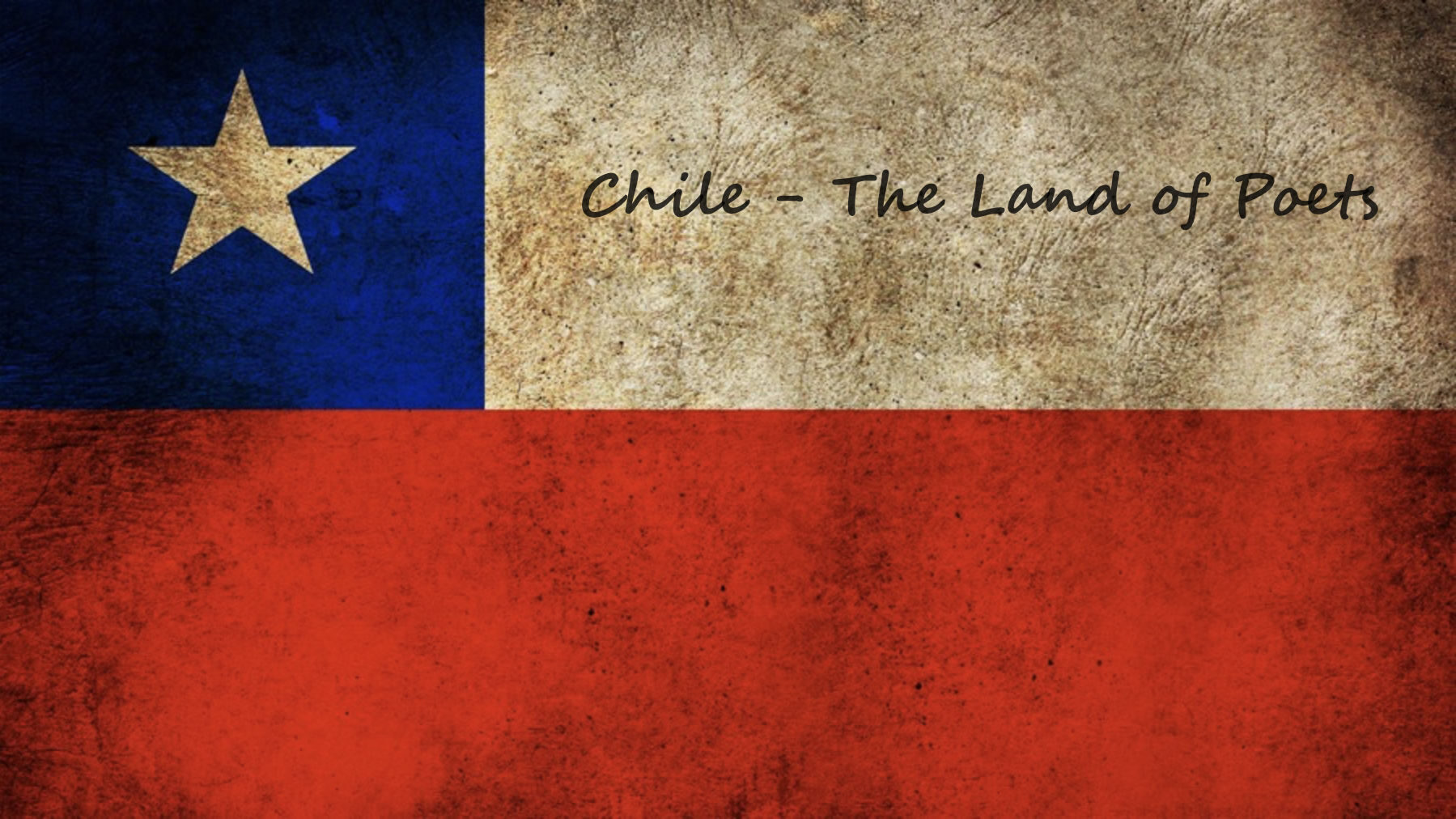Chile – The Land of Poets
Chile is known for several things. It’s one of the longest countries in the world; it’s one of the largest copper producers in the world, has stunning landscapes, including Easter Island, and it has earned the nickname “Land of Poets” because of its rich literary history, which has profoundly impacted global literature.
As a child, I was surrounded by ornaments of Chilean poet Pablo Neruda, which was my first exposure to poetry. It wasn’t until my first year of university that I would encounter him again when I purchased his poetry book, Twenty Love Poems and a Song of Despair, which is still the most romantic poetry book I have. My favourite poem: Tonight I Can Write (The Saddest Lines), was one of the most beautiful poems I had ever read. It was full of conflicting emotions and the embodiment of the definition of ‘bittersweet.’ These lines are still the most poignant for me:
Another’s. She will be another’s. As she was before my kisses.
Her voice, her bright body. Her infinite eyes.
I no longer love her, that’s certain, but maybe I love her.
Love is so short, forgetting is so long.
Pablo Neruda wrote that collection of poems when he was 19. He was gifted and was awarded the Nobel Prize in Literature later in his life. I knew I would never be able to write like him. I also knew I would never be a romantic love poet – I tried. It was time to move on to Gabriela Mistral whose poetry I discovered when I was visiting Chile, my country of birth, in my early thirties.
Valle del Elqui is a region in the central north of Chile where you can experience the contrast between mountains and fertile valleys and an endless sky, which makes it Chile’s astronomy heartland with around a dozen observatories. It’s also the birthplace of Gabriela Mistral who was born there in 1889.
Gabriela Mistral was known for her lyrical poetry, which was centred around themes like nature, sorrow and recovery, and love. She was the first Latin American author to receive the Nobel Prize in Literature in 1945 and had a tremendous influence on Latin American poetry. I am slowly reading her work, which because of the timeframe, is still mostly in Spanish and will take me some time to translate it. This is an excerpt from my favourite poem of hers, Song of Death, which is about a mother pleading with death to spare her child, and which demonstrates the power in her writing:
Old Woman Census-taker,
Death the Trickster,
when you’re going along,
don’t you meet my baby.
Sniffing at newborns,
smelling for the milk,
find salt, find cornmeal,
don’t find my milk.
For the sake of brevity, I will conclude with another poet who I discovered while visiting Chile, Nicanor Parra, who has been considered one of the most influential Spanish-language Chilean poets of the 20th century. Nicanor Parra was nicknamed the “anti-poet” for his dislike of the arrogant pretences of poetry and poets.
He was a professor of theoretical physics, and he published dozens of books. He was born into a famous Chilean artistic family, and he would conclude his recitation by saying: “Me retracto de todo lo dicho.” (“I take back everything I’ve said.”)
I feel privileged to have been born in Chile, the Land of Poets, and conclude this post with my favourite poem by Nicanor Parra as a toast to the great Chilean poets, both living and dead:
The Last Toast Poem
Whether we like it or not,
We have only three choices:
Yesterday, today and tomorrow.
And not even three
Because as the philosopher says
Yesterday is yesterday
It belongs to us only in memory:
From the rose already plucked
No more petals can be drawn.
The cards to play
Are only two:
The present and the future.
And there aren’t even two
Because it’s a known fact
The present doesn’t exist
Except as it edges past
And is consumed…,
like youth.
In the end
We are only left with tomorrow.
I raise my glass
To the day that never arrives.
But that is all
we have at our disposal.
Sign up for the monthly newsletter and never miss a word.

